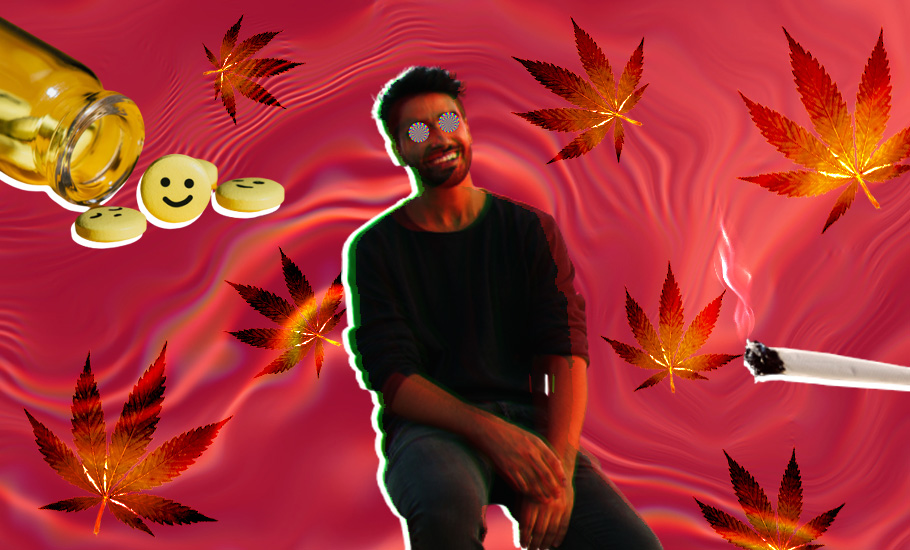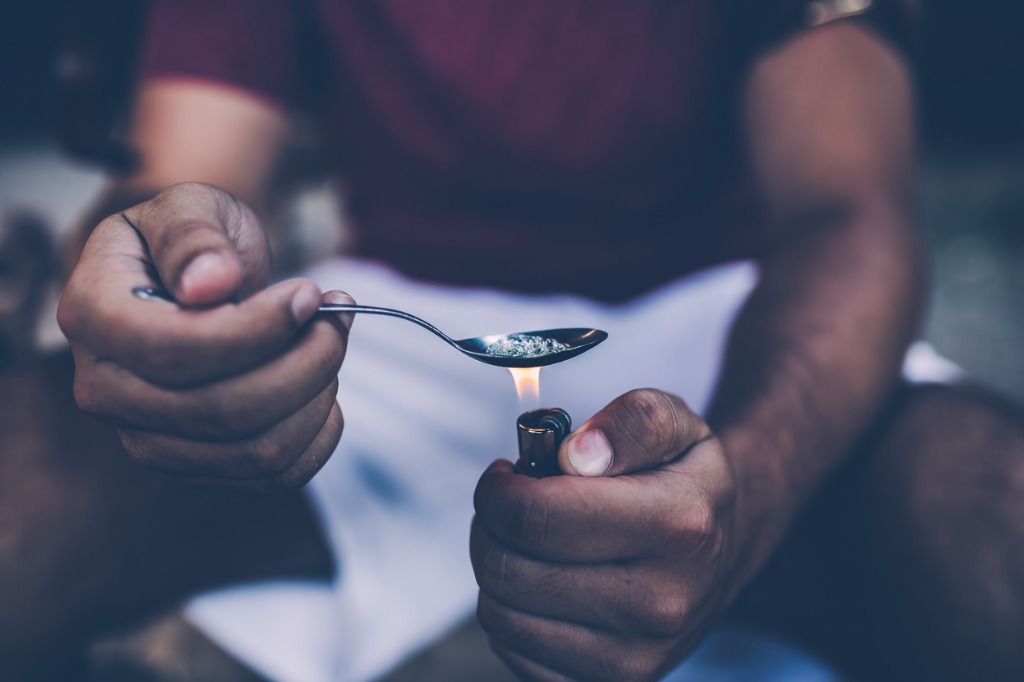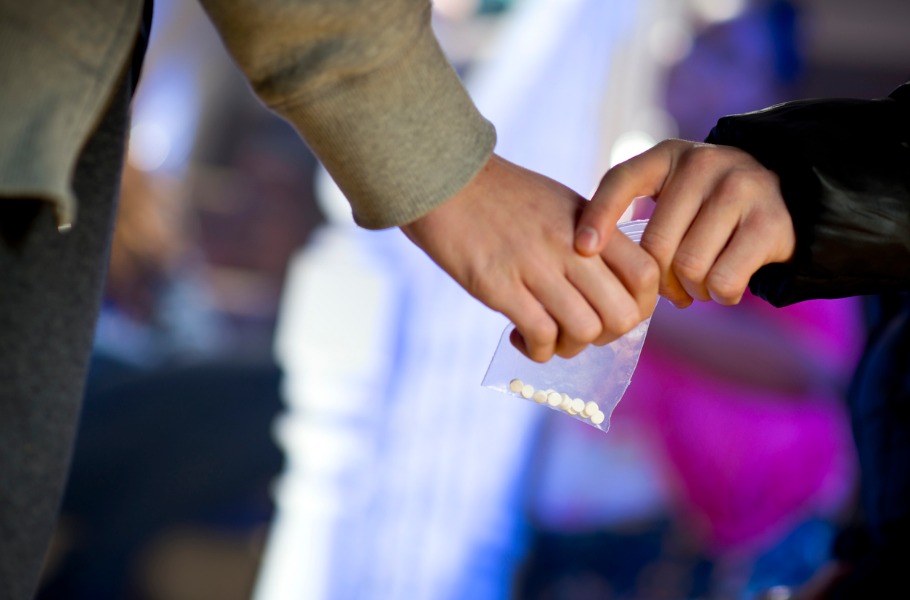
- Home
- India
- World
- Premium
- THE FEDERAL SPECIAL
- Analysis
- States
- Perspective
- Videos
- Sports
- Education
- Entertainment
- Elections
- Features
- Health
- Business
- Series
- In memoriam: Sheikh Mujibur Rahman
- Bishnoi's Men
- NEET TANGLE
- Economy Series
- Earth Day
- Kashmir’s Frozen Turbulence
- India@75
- The legend of Ramjanmabhoomi
- Liberalisation@30
- How to tame a dragon
- Celebrating biodiversity
- Farm Matters
- 50 days of solitude
- Bringing Migrants Home
- Budget 2020
- Jharkhand Votes
- The Federal Investigates
- The Federal Impact
- Vanishing Sand
- Gandhi @ 150
- Andhra Today
- Field report
- Operation Gulmarg
- Pandemic @1 Mn in India
- The Federal Year-End
- The Zero Year
- Science
- Brand studio
- Newsletter
- Elections 2024
- Events
- Home
- IndiaIndia
- World
- Analysis
- StatesStates
- PerspectivePerspective
- VideosVideos
- Sports
- Education
- Entertainment
- ElectionsElections
- Features
- Health
- BusinessBusiness
- Premium
- Loading...
Premium - Events

While you’re having lockdown blues, life’s pretty dope for some
While the COVID-19 lockdown was a morose affair for most, illegal drug users continued to live a high life, albeit at a higher cost.

“It’s a morning ritual, boss. It’s difficult to start or end my day without it.” This is how Lokesh (name changed) describes his addiction to marijuana. Standing in front of a roadside tea shop at Chennai’s KK Nagar, Lokesh tells The Federal how an innocuous indulgence with college friends turned into a lifestyle choice. So much so that he found it difficult to go without it even for...
“It’s a morning ritual, boss. It’s difficult to start or end my day without it.” This is how Lokesh (name changed) describes his addiction to marijuana. Standing in front of a roadside tea shop at Chennai’s KK Nagar, Lokesh tells The Federal how an innocuous indulgence with college friends turned into a lifestyle choice. So much so that he found it difficult to go without it even for a day during the “harsh lockdown” imposed in the wake of the coronavirus.
“You didn’t give up eating during lockdown, did you? So why judge me or people like me?” he asks.
But Lokesh is not just a marijuana addict, his dependence on weed has also turned him into a mule. For many of his customers, Lokesh is the handsome friend-turned-pot dealer. However, he caters only to a niche clientele.
“I have to drive till the Andhra (Pradesh) border and have to pick up the load for our atti (gang). We then share it among ourselves and don’t involve too many people.” He, however, insists that what he does cannot be termed as smuggling or a business. “It’s just a joy of sharing.”
The lockdown, for obvious reasons, made life difficult for Lokesh as it became difficult for people like him to sneak marijuana into or outside the state.
“Unlike normal times, it became extremely difficult to get the stuff or to transport it,” he says, recounting how he used to pose as a student or a working professional to get there. It was worse during the 12-day intense lockdown from June 19, when he couldn’t move out of his street.
“It has also become quite costly too,” he says, adding that those who managed to get out despite the heavy police presence started charging a hefty amount.
While one would assume Lokesh to be a full-time drug dealer, he is actually an employee of a top IT firm who draws a monthly salary of about ₹40,000.
According to Lokesh, it is not just him, a lot of people working in IT firms have been doing this. “And there is nothing wrong in it. Is sharing what you have a crime?” Lokesh asks.
Raging blood and business
Drug dealers operating across cities these days are far from the stereotypes of long-haired, gun-toting scary guys, say Narcotics Control Bureau officials. Many of these mules, the officials claim, are “well-educated and well-placed boys as well as girls”.
While many of them are addicted to marijuana, according to NCB officials, most of the young people these days are addicted to party drugs. “The most sought-after drug is XTC (ecstasy pills),” says an official privy to the developments.

The banned ‘love drug’ or ‘thrill pill’ or ‘molly’ that has been a craze in the West hit the Indian party circuit as long back as the mid-2000s. “So much so that it is even manufactured on the sly in local factories and transported abroad,” the official says.
The now-common drug in Indian rave parties and night clubs is actually a laboratory-made drug called MDMA (3,4-methylenedioxy-methamphetamine). It’s a synthetic drug that alters mood.
While a number of seizures have been made on a regular basis, what surprised officials was the unabated sneaking in and out of ecstasy and other contrabands even during the pandemic-necessitated peak lockdown period.
Between June 19 and 30, Chennai Air Customs seized at least three such parcels that arrived at the Foreign Post Office that contained different variants of ecstasy and MDMA crystals. Of the three consignments, one was from Germany and one from the UK.
The officials claim ecstasy pills would usually come from other countries in Europe and it was the first time that it came from the UK. During the 12-day lockdown, customs officials seized ecstasy pills worth over ₹15 lakh.
While most cases are caught based on a tipoff about a parcel moving to a major city, peddlers these days have moved to the outskirts or suburbs where monitoring is almost nil.
A techie, working in Bangalore, says he and his friends were initially getting their stash from Goa and later from Pondicherry. This native of Tamil Nadu is famous among his friends for the colourful private parties hosted by him.
His first brush with the ‘magic drug’ was way back in 2014 during a trip to his “dream destination” Goa with office colleagues.
“It was my first trip to Goa. The entire party was fun and I cannot describe the high. So, we saved a few pills for our use in Chennai,” he tells The Federal.
Later, he and his friends had a party in Chennai where they used those pills again.
“But this time, we shared it with a few more friends who had not come to Goa. But there was a strict code of secrecy—no one was supposed to leak anything to any outsider. Once the pills got over, we rang up the person we had met in Goa and he sent it in secret parcels along with books and other items for which we used to pay him online.”

Asked if he too sells these pills now, he says he does stock some but, just like Lokesh, he too insists it does not amount to selling or smuggling.
“It’s not a business. We share the expenses for scoring these pills. But obviously the one who takes the maximum risk of receiving the stash and keeping it in their place does get some ‘credit’. We don’t involve too many people and share it with only friends of friends,” he adds.
Drug abuse among the well-off
Narcotics Control Bureau officials say while marijuana is used by everyone irrespective of their economic and social background, most of the party drugs are smuggled and used by the educated and well-to-do people, given the high cost of the drugs and their availability.
“Most of party drugs such as LSD, MDMA are costlier than the local drugs. So, only those with spare cash can afford to indulge in it and when they can’t spare the money anymore, they don’t mind becoming a conduit or mule,” says an NCB officer who did not wish to be named.
Some get involved in the trade, selling it only to their close friends for a small margin. This, the officer says, is not for money but to reduce their share of the cost in procuring the drugs.
Another officer says the three seizures in the recent past involved such well-off, young people, including women consignee.
“A person working in a leading tech firm in Bangalore ordered 100 MDMA pills through his friend staying abroad,” the officer adds. “But the parcel carried an address in Erode, Tamil Nadu.”
When the officials reached the address in Erode, he obviously was not there.
They just found his parents who had no clue about the drug and told the officials that their son was stuck in Bangalore since lockdown. Upon raiding his premises in Bangalore, customs officials arrested the 25-year-old techie and charged him under the NDPS Act.
“They do not even think of it as a crime. Just because they got it very easily in Goa and Pondicherry, they feel that it is not a big crime. But it is only a matter of time until they get caught,” the official adds.
However, a friend of the Bangalore techie says the reality has started to sink in.
“Before the lockdown, we used to party a lot in Chennai and Bangalore, and it was not a big deal to get these drugs. But whenever some friends used to ask me to avoid doing drugs, I used to tell them ‘I am not an addict’.”
But during this lockdown, he adds, he realised: “I’m indeed an addict and very much part of the deal (crime syndicate).”
